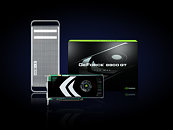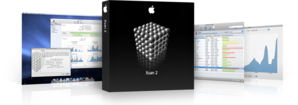Apple released a massive set of patches on Tuesday afternoon fixing more than 90 vulnerabilities in almost every component of its operating systems. Apple's "Patch Tuesday" patches fix bugs in both the client and server editions of Mac OS X Tiger and Leopard. The Leopard bundle included fixes for AFP Client, Apache, Application Firewall, ClamAV, CUPS, macs, Help Viewer, Image Raw, Kerberos, mDNSResponder, OpenSSH, pax archive, PHP, Podcast Producer, Preview, Printing, System Configuration, UDF, Wiki Server and X11. The Tiger update fixes holes in AFP Client, AFT Server, Apache, AppKit, CFNEtwork, ClamAV, CoreFoundation, CoreServices, CUPS, curl, Emacs, file, Foundation, Help Viewer, Kerberos, libc, notifyd, OpenSSH, PHP, System Configuration and X11. Security Update 2008-002 is available
here for Mac OS X v10.4.11, Mac OS X Server v10.4.11, Mac OS X v10.5.2, Mac OS X Server v10.5.2. For detailed information, please visit this
website.



